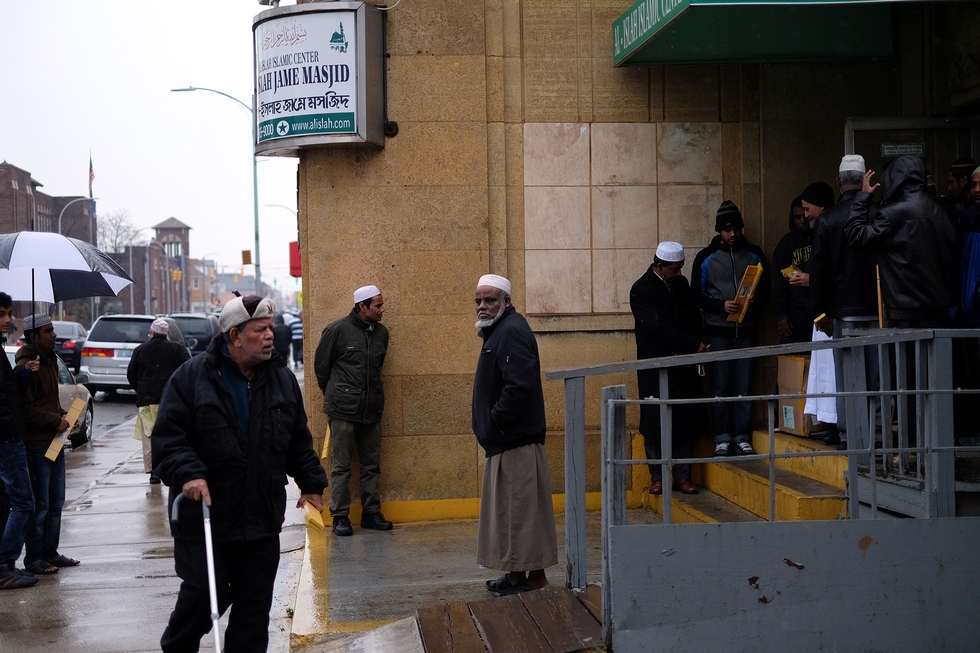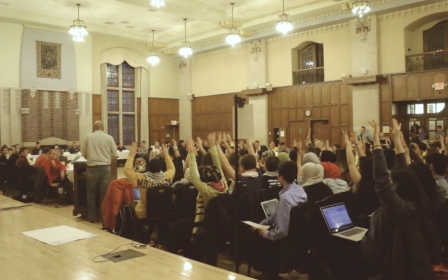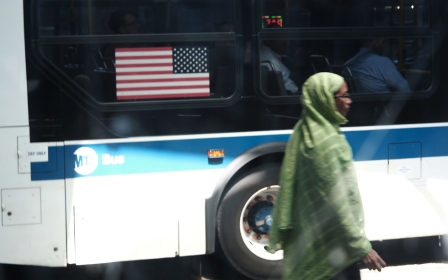US Islamic school wins lengthy legal battle to set up facility in Michigan

An Islamic school in Michigan has been awarded $1.7m after settling its lawsuit for the right to build a new facility, following a five-year legal battle that those involved say paves the way for Muslim-Americans across the country to protect their rights.
The Michigan Islamic Academy (MIA) brought a lawsuit against Pittsfield Township, in the midwestern US state of Michigan, arguing that it was unlawfully denied the right to build a school on its property.
The school used the Religious Land Use and Institutionalized Persons Act (RLUIPA), which protects individuals and religious institutions against discrimination in zoning, and the Establishment and Equal Protection Clauses of the United States Constitution.
Last week, the MIA announced the township agreed to settle the lawsuit for $1.7m. The academy also has the green light to build a 70,000-square-foot facility, a residential development consisting of 22 duplex units and three single-family homes, and a park.
“The community in general is elated by the settlement,” said Dawud Walid, executive director at the Michigan chapter of the Council on American-Islamic Relations (CAIR-MI), which brought the lawsuit.
Walid told Middle East Eye the local Muslim community has grown substantially in the last 25 years, and the current MIA facility is overcrowded and does not meet the community’s current needs.
“That was the whole purpose of buying the property to establish a new school because the current location is simply too small for the current needs of the community, much less the expected growth of Muslims in that part of Michigan,” he said.
Muslims particularly vulnerable
Gadeir Abbas, co-counsel for the school, explained that the Religious Land Use and Institutionalized Persons Act was passed in 2000, after mainly Christian groups sought to prevent religious-based discrimination in land usage policies.
“It bodes well for religious diversity in America that Muslims are benefiting from a law that was born out of the experience of other groups’ confrontations with discrimination,” Abbas told MEE.
And MIA’s success sends a clear message on the ability of other Muslim communities across the US to have their rights respected under the law. “We think that MIA’s five-year battle with the township bodes well for the ability of other Muslim communities to have their rights respected,” he said.
According to a 2010 report put out by the US Department of Justice on the 10-year anniversary of RLUIPA, “animus-based discrimination remains a priority”.
“Jewish synagogues and schools, African- American churches, and, increasingly, Muslim mosques and schools are particularly vulnerable to discriminatory zoning actions taken by local officials, often under community pressure,” the report found.
A more recent report released by the department in July 2016 described a “sharp increase” in RLUIPA cases involving mosques and Islamic schools, and most have included allegations of intentional religious-based discrimination.
Only 20 percent of cases involving mosques and Islamic schools are resolved successfully without the US government or private parties filing a lawsuit, compared to 84 percent for non-Muslim investigations, the report found.
"Jewish synagogues and schools, African- American churches, and, increasingly, Muslim mosques and schools are particularly vulnerable to discriminatory zoning actions taken by local officials." - Department of Justice report
The US Department of Justice intervened in the MIA lawsuit in Michigan last year.
“Not only is it happening more to Muslim communities, when it does happen, the opposition to Islamic land uses is clearly more entrenched,” Abbas said.
“Islamic schools and houses of worship across the country have confronted discriminatory zoning practices and it’s just a sign of the times that Muslim communities across the country have had to press for their rights to be respected in a way that other communities haven’t.”
Denying wrongdoing
Officials in Pittsfield Township “emphatically deny any wrongdoing, discrimination or violation of law," Pittsfield Supervisor Mandy Grewal said in a written statement to The Ann Arbor News following the settlement announcement.
The township rejected the MIA project proposal because it called for “high-volume, multi-use facilities with little to no buffering” between the new project and an existing subdivision, Grewal said. The township also had feared an increase in traffic and noise.
"The Township's position from the beginning was and continues to be about protecting existing residents in this region from land uses that were not originally envisioned when they purchased their homes,” the statement read.
But noise and light were not an issue since the school would operate during the day, not during sleeping hours, according to an Expert Opinion Report written by Jaques Gourguechon.
“[T]he Planning Commission’s fear that noise would be a factor is ungrounded and against common sense... The activities of a small scale school simply do not produce noise that will unsettle a residential neighborhood,” Gourguechon wrote, according to a brief filed by MIA in US District Court.
The brief also cited the MIA site planner, Dave Kubiske, who testified that the Pittsfield Township planning commission “didn’t want the project to go, period, from the day we walked in the door”.
“They didn’t even want to look at it. They were already ready to vote 'no', and they didn’t even know the facts,” Kubiske said, adding that he had never run into a situation like this in a professional career that spans over 30 years.
Coded language
According to Walid, zoning board members in these types of cases “aren’t blatantly saying, ‘We hate Muslims,’ or ‘We don’t want Muslims here.’”
Instead, they are employing coded language that has a long – and racially-biased – history in the US, like saying a project would change “the complexion of a neighbourhood,” he said.
“We all know what that code language means, and I specifically know what it means, not just as a Muslim civil rights activist, but as an African-American. That’s old code language in America of how people with racism want to exclude whom they consider to be the other,” Walid said.
“They didn’t even want to look at it. They were already ready to vote no, and they didn’t even know the facts” - Dave Kubiske, MIA site planner
He said that Muslim community groups in the past have picked up and moved elsewhere when they encountered zoning disputes over Islamic schools, mosques and other religious institutions.
“But that’s old business,” he said. “The new paradigm is our community is not going to relinquish its rights and move to other areas just because of a de facto type of neo-Jim Crow mentality.
“We’re not going to be a passive community and relinquish our rights. We’re going to have our rights respected like all other Americans.”
New MEE newsletter: Jerusalem Dispatch
Sign up to get the latest insights and analysis on Israel-Palestine, alongside Turkey Unpacked and other MEE newsletters
Middle East Eye delivers independent and unrivalled coverage and analysis of the Middle East, North Africa and beyond. To learn more about republishing this content and the associated fees, please fill out this form. More about MEE can be found here.




